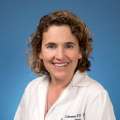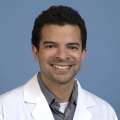Transplant ID
Transplant (ID) infectious diseases within the clinical scholars track
Within our two-year ACGME ID fellowship training program (clinical scholars track), fellows can elect to choose Transplant (ID) infectious diseases as a concentration. This provides an opportunity to improve clinical knowledge in the care of transplant recipients including risk for infection, treatment choices, and interpretation of relevant diagnostic testing results. In addition, fellows in the Transplant ID concentration are strongly encouraged to pursue a research project on a topic of their choice, with an appropriate mentor. Projects range from retrospective chart reviews, case reports, case series, or translational research projects.
Fellows will be encouraged to spend elective time on Transplant ID services based on their specific area of interest. In addition, Transplant ID clinics can be included during clinic blocks to increase the amount of exposure to outpatients pre- and post-transplant including heart, lung, liver, and kidney transplantation and ventricular assist device, as well as patients with hematologic malignancies and hematopoietic cell transplantation.
Transplant ID within the academic research track
Individuals who are interested in an ID fellowship that will prepare them to be independent investigators in Transplant infectious diseases can apply to the academic research track within. This track includes one intensive clinical year (with exposure to both general and transplant ID) followed by 2 or more years of mentored research in an area of interest within the field of Transplant ID. Fellows in this track are encouraged to participate in the UCLA STAR program and obtain either a Master of Science in clinical research or a PhD. Fellows in this track typically write an NIH K-award (career training grant) towards the end of their fellowship training. For more information, please visit the links below:
Advanced clinical training program in transplant ID
The UCLA Division of Infectious Diseases is pleased to offer a new one year program in advanced clinical Transplant ID, which is open to those who have completed at least 2 years of an ACGME-accredited ID fellowship program and are board-eligible or board-certified who wish to develop their interest in the field of transplant infectious diseases through 1 year of dedicated clinical training devoted to the care of these patients Applications are typically due in September of the year before the July 1 start date.
The goal of the advanced clinical training in Transplant ID program is to gain in-depth experience caring for patients undergoing heart, lung, liver, and kidney transplantation (pre- and post-transplant care) and ventricular assist device implantation, as well as patients with hematologic malignancies and undergoing hematopoietic cell transplantation. Ronald Reagan UCLA Medical Center has one of the highest volume solid organ transplantation programs in the country, with over 600 transplants performed in 2017 including over 120 thoracic organ transplants. Fellows will have the opportunity to design their year to focus on any specific area of interest within the field of transplant, while still rotating through all transplant services to gain a breadth of experience.
In addition to outpatient and inpatient rotations, Transplant ID fellows will have the opportunity to perform a mentored research project on a topic relevant to Transplant ID such as the changing epidemiology of invasive fungal infections, the evolution of resistant organisms, and caring for the older transplant recipient.



